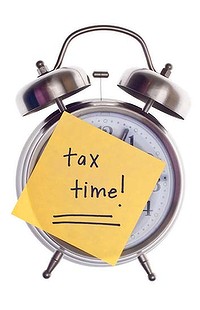Newsletter
Business - What registrations do you need?
- Saturday, 01 March 2014 04:54
AUSTRALIAN BUSINESS NUMBER (ABN)
It’s best to get an ABN for your business if you are in business. If you don’t, other businesses have to withhold 46.5% from their payments to you.
All businesses need a TFN. Sole traders use their individual TFN. Partnerships, companies and trusts need a separate TFN for the business.
Before you go about applying for an ABN it’s important that you understand what business structure you have or will be operating under (i.e. sole trader, partnership, company or trust) and which registrations you require. 
If you plan to run your business through a company structure, you need to register your company with the Australian Securities and Investments Commission (ASIC) who will issue your company with an Australian Company Number (ACN) before you can get your ABN and tax registrations.
When applying for your ABN, you need to request registration for Goods and Services Tax (GST) and Pay as you go withholding (PAYGW) if required as this is not automatic.
GOODS AND SERVICES TAX (GST)
To register for GST, you must already have an ABN. You must register for GST if you are carrying on a business or other enterprise and your current or expected GST turnover is $75,000 or more (for non-profit organisations the threshold is $150,000 or more). If your GST turnover is less than $75,000, registering is optional. If you provide taxi travel, you must register for GST regardless of your turnover. This applies to both owner drivers and people who lease a taxi.
It is your responsibility to register for GST within 21 days if your turnover exceeds the threshold, or is likely to exceed it. If you are not registered for GST, then you cannot charge GST on the goods and services you provide or claim a credit for GST paid on business purchases.
PAY AS YOU GO WITHHOLDING (PAYGW)
You must register for PAYGW if you need to withhold an amount from a payment. The most common payments you need to withhold amounts from are payments you make to your employees, your directors and businesses that do not quote their ABN to you.
If you operate your business structure as a sole trader or a partnership and you draw amounts from the business, this is not a wage and you do not have to withhold from these drawings. You make some provision for your income tax liability through PAYG instalments. However, if you have other employees, you must withhold amounts from payments you make to them under PAYGW.
If you operate your business structure as a company or trust with a corporate trustee, it is likely you are either an employee or director of that business. If the company or corporate trustee pays you a wage or directors fees, it has the same responsibility to withhold amounts from these payments and send the withheld amounts to the Australian Taxation Office (ATO).
Please do not hesitate to contact us in relation to any of the above. We are more than happy to help you with all your registration needs and take the hassle away from you.
Key Tax Dates
- Saturday, 01 March 2014 04:54
21 OCTOBER 2013 
• Annual pay as you go (PAYG) instalment notice (Form N) – due date for payment. Lodgement is only required if you vary the instalment amount or use the rate method to calculate the instalment.
21 OCTOBER 2013
• September 2013 monthly activity statements - final date for lodgement and payment.
28 OCTOBER 2013
• Superannuation guarantee contributions for Quarter 1 (July - September 2013) are to be made to the fund by this date.
31 OCTOBER 2013
• Final date to appoint a tax agent to the income tax role for any new client. If you advise us of your appointment after this date, your 2013 income tax return may not be covered by the concession in our tax agent lodgement program.
• Income tax returns for all entities where one or more prior year income tax returns were outstanding as at 30 June 2013. This means all prior year returns must be lodged, not just the immediate prior year. If all outstanding prior year returns have been lodged by this date, the ATO system will reset the 2013 return due date as per the normal program. Self-managed super funds (SMSF) in this category must lodge their complete Self-managed superannuation fund annual return by this date.
• Income tax return for all entities prosecuted for non-lodgement of prior year income tax returns and advised of a lodgement due date of 31 October 2013. Some prosecuted clients may have been given a different lodgement due date. Refer to the letter you received on this matter for the applicable due date. Self-managed super funds (SMSF) in this category must lodge their complete Self-managed superannuation fund annual return by this date.
21 NOVEMBER 2013
• October 2013 monthly activity statements - due date for lodgement and payment.
25 NOVEMBER 2013
• Quarter 1 activity statements (July - September 2013) - due date for lodgement and payment if you are lodging via electronic commerce interface (ECI), electronic lodgement service (ELS), Tax Agent Portal, BAS Agent Portal or Standard Business Reporting (SBR).
28 NOVEMBER 2013
• Due date for lodging Superannuation guarantee charge statement - quarterly and paying the super guarantee charge for Quarter 1 (July – September 2013), if the employer did not pay enough contributions on time.
1 DECEMBER 2013
• Income tax for taxable large/medium businesses, companies and super funds - due date for payment. Lodgement of return is due 15 January 2014.
• Income tax for companies and super funds where lodgement of the income tax return was due 31 October 2013 - due date for payment.
21 DECEMBER 2013
• November 2013 monthly activity statements - final date for lodgement and payment.
SMSF News
- Saturday, 01 March 2014 04:54
SMSF AUDITORS 
Each income year, a self-managed super fund (SMSF) trustee must appoint an independent approved SMSF auditor to perform a financial and compliance audit of their SMSF's operations before they lodge their SMSF annual return.
From 1 July 2013, trustees should check with the auditor they intend to appoint to make sure they are registered with the Australian Securities and Investments Commission (ASIC) and have been issued with an SMSF auditor number – even if they have appointed this auditor for previous years.
They must appoint their auditor no later than 45 days before the SMSF annual return is due for lodgement.
SMSF auditors who are not registered with ASIC cannot undertake SMSF audits.
SMSF MARKET VALUE REPORTING
For the 2012–13 income year and any later years of income, SMSFs are required to use market value reporting for their financial accounts and statements.
SMSF SUPERVISORY LEVY
The SMSF levy will increase from $191 to $259 per annum from 2013-2014. Payment will also be brought forward so it is collected and levied in the same year. The bring forward component will be phased in over 2 years.
Data Matching - New Compliance Data Sources
- Saturday, 01 March 2014 04:54
The New Compliance Data Sources Program enables the Department of Human Services to identify social welfare recipients who may not have disclosed income and assets to the Department of Human Services by obtaining details from the Australian Business Register. This register includes the name and address of business owners and company registration details. 
The details will be electronically matched with specific Department of Human Services data holdings, to identify non-compliance with income or other reporting obligations. Records exceeding 5,000 individuals will be matched.
The Department of Human Services, Centrelink Master Program data base holds approximately 7 million unique records. The Australian Business Register data base holds in excess of 10 million unique Australian Business Number (ABN) records.
Based on investigation criteria the department expect to examine less than 10,000 records, of which less than 1,000 cases are likely to be referred for review or investigation.
Source: Australian Government Gazette C2013G01342
Newsletter Signup
Receive FREE information and advice on Accounting & Taxation every Quarter
SignupArchive
- 4th Quarter 2024 (8)
- 3rd Quarter 2024 (9)
- 2nd Quarter 2024 (9)
- 1st Quarter 2024 (11)
- 4th Quarter 2023 (11)
- 3rd Quarter 2023 (9)
- 2nd Quarter 2023 (7)
- 1st Quarter 2023 (8)
- 4th Quarter 2022 (9)
- 3rd Quarter 2022 (8)
- 2nd Quarter 2022 (10)
- 1st Quarter 2022 (9)
- 4th Quarter 2021 (9)
- 3rd Quarter 2021 (8)
- 2nd Quarter 2021 (9)
- 1st Quarter 2021 (7)
- 4th Quarter 2020 (8)
- COVID-19 STIMULUS NEWSLETTER (8)
- 3rd Quarter 2020 (7)
- 2nd Quarter 2020 (9)
- 1st Quarter 2020 (9)
- 4th Quarter 2019 (8)
- 3rd Quarter 2019 (8)
- 2nd Quarter 2019 (7)
- 1st Quarter 2019 (8)
- 4th Quarter 2018 (7)
- 3rd Quarter 2018 (8)
- 2nd Quarter 2018 (8)
- 1st Quarter 2018 (8)
- 3rd Quarter 2017 (7)
- 2nd Quarter 2017 (7)
- 1st Quarter 2017 (7)
- 4th Quarter 2017 (8)
- 4th Quarter 2016 (7)
- 3rd Quater 2016 (7)
- 2nd Quater 2016 (7)
- 1st Quarter 2016 (8)
- 4th Quarter 2015 (6)
- 3rd Quarter 2015 (6)
- 2nd Quarter 2015 (8)
- 1st Quarter 2015 (6)
- 4th Quarter 2014 (7)
- 3rd Quarter 2014 (8)
- 2nd Quarter 2014 (7)
- 1st Quarter 2014 (8)
- 4th Quarter 2013 (7)
- 3rd Quarter 2013 (6)
- 2nd Quarter 2013 (9)
- 1st Quarter 2013 (8)